This week was particularly full of fun and engaging activities. After staying a week at the wonderful Stillpoint Country Manor in Johannesburg, South Africa, we are excited to be in Mbabane, Swaziland. The first week of classes went well, with exciting advancements in both global health issues and camera knowledge and understanding.
In the Classroom
On the global health side, this week’s theme was an introduction into public health, as well as TB and HIV in the context of southern Africa. On the visual literacy side, we spent the week learning about how to use the settings on the cameras as well as story structure and storytelling. This course smashes two somewhat separate disciplines together, and at the moment they are quite “separate” – i.e. we spend the mornings talking about TB and HIV mechanisms, and the afternoons talking about shutter speed, aperture, and story structure. We hope in the coming weeks, these learning criteria will converge to unity, allowing the students to make expert films addressing critical global health issues.
Outside the Classroom
The original plan was to be in Mbabane the entire course, but that quickly changed once we considered the content of the course. The reason we spent a week in Johannesburg was because the important and unique history of South Africa was too important to see from the airport. We spent the week engaging in activities that enriched the education and understanding of the students.
Icebreakers: Laser Tag!
Getting to know a group of people is sometimes like a war zone. Outside of the traditional “tell us your name, your major, and something interesting about yourself” icebreakers during orientation, we decided to embrace the opportunity and play team laser tag. (Important to note, in the last “professors vs students” round, the professors won.)
Constitutional Court and Meeting Justice Edwin Cameron
As Jessica’s blog explains, we had the unprecedented opportunity to not only tour South Africa’s highest court but also meet Justice Edwin Cameron. Justice Cameron is the only openly HIV positive government official in South Africa, and his critical role in the battle for access to antiretroviral treatment during the Treatment Action Campaign’s victorious legal case in the constitutional court is portrayed in the award-winning documentary Fire in the Blood.
Slackline and Camera Practice
As the feature video shows, we had some fun with the cameras. Shalila brought her “slackline” with her for the course, which is best described as a long seatbelt loosely strung between two trees on which someone balances, or in our case tries to balance. This allowed us to think through the filming process. First, we sat as a group and thought, “if we were to make a video on slack lining, what would it look like?” We thought through the mood, tone, process, and story. We then whipped out the cameras and went to filming. Later, we practiced editing and learning the post production process.
Lion and Rhino Park
The “adorable award” of the week goes to the Lion and Rhino Nature Reserve, where, as Liz tells in her blog, the students were able to play with and pet baby lions! We also saw an incredible amount of wildlife, including albino lions, brown lions, black rhino, springbok, ostriches, warthogs, meerkats, various reptiles, giraffes, and more. During lunch, we got to meet “Sunny Boy,” the young giraffe that hangs out at the Neck&Deck cafe at the park. We were able to feed and pet Sunny Boy and his nameless brother, though their dad was a bit shy.
Meeting Thato and her husband
Liz also talks in her blog about our wonderful dinner guests, Thato and her husband. Thato is a medical doctor in South Africa who became infected with XDR-TB (extensively drug resistant tuberculosis). Only about 16% of XDR-TB patients have favorable outcomes, and luckily she was one of them. She spoke eloquently about the impact that the disease had on her and her family, the processes that led to her infection, the social and political constructs that facilitate drug resistant TB in South Africa, and the reasons she was able to have success against the disease. We feel that students can learn about TB, HIV, and other diseases back in New Haven, but they can only experience such intimate detail and experience by speaking with people affected by disease. Luckily for us, as a medical doctor, Thato was able to answer any questions the students (or we!) had.
See you next week! Prof. Jonathan Smith and Dr. Tara Streich-Tilles
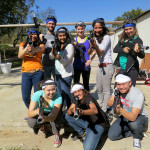
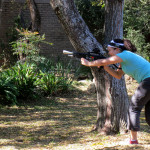
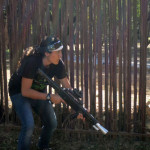
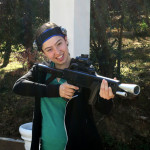
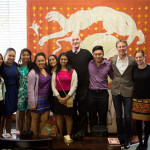
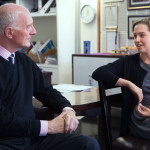
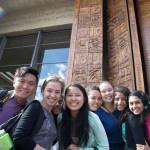
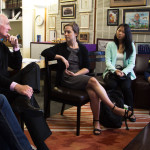
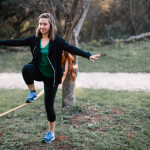
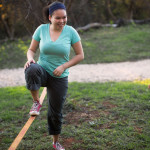
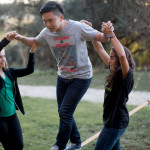
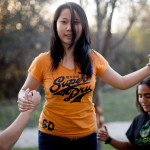

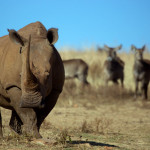

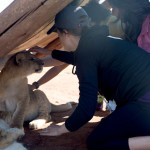
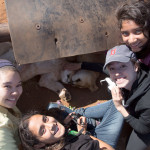
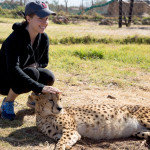
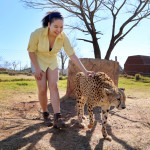
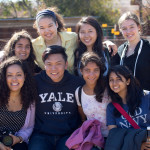

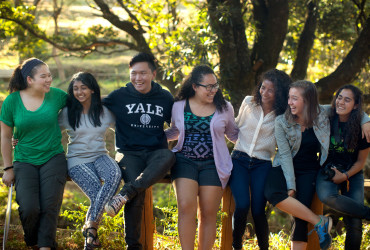
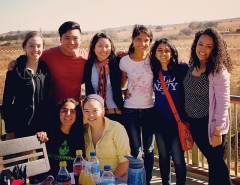
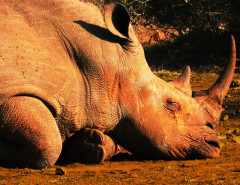

Leave a Reply